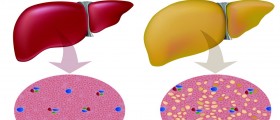
Liver cancer is highly lethal disease. In most cases the diagnosis is established when the disease has progressed hence the full recovery is impossible. In later stages the lethal outcome is predictable. However if found on time this cancer can be treated by different modalities including the surgery and chemotherapy or even a combination of these two. The sooner the cancer is diagnosed the better is survival rate.
Surgical removal may be conducted in both cases, primary tumor of the liver and in case of metastases of other malignacies in liver. The surgeons cannot remove the entire liver as one cannot live without it.
There are numerous surgical options in case of liver cancer. They include cryosurgery and partial resection of the liver. Partial resections vary according to the extension of the resection. If only one lobe is removed the surgical procedure is called lobectomy and segmectomy means that whole segment has been resected. In some cases even liver replacement is possible. No matter what type of operation is performed it is done under general anesthesia and lasts approximately two to five hours.
Prior the operation numerous tests and scan are performed. It is important that surgeon knows the exact location of the tumor and CT scan of upper abdomen makes this possible. Even MRI of the abdomen is good. While removing the tumor it is essential that surrounding tissue is removed as well. The margin of at least 1/2 inch is recommendable.
Complications after the surgery predominantly include tiredness and pain in upper abdomen. There are also problems with digestion and one is supposed to stick to light dietary regime at least for a while. One may suffer from diarrhea and the feeling of pressure within abdomen. Hemorrhage and infections are rare but still possible. The most severe complication is failure of this precious organ.
In case that patient suffers from cancer of any other primary site and that disease has spread only onto the liver and the patient may be subjected to metastasectomy or resection of liver metastases. This is done after the conformation that the disease has not affected the rest of the body. Metastasectomy is performed in case of metastatic colorectal and lung carcinoma. Still even in these patients the surgery is not the permanent solution and treatment must be continued with chemotherapeutics.
The problem is that disease tends to be diagnosed too late or the tumor may be present close to significant liver blood vessel. In these situations surgery is impossible and the only option is chemotherapy.

















Your thoughts on this
Loading...